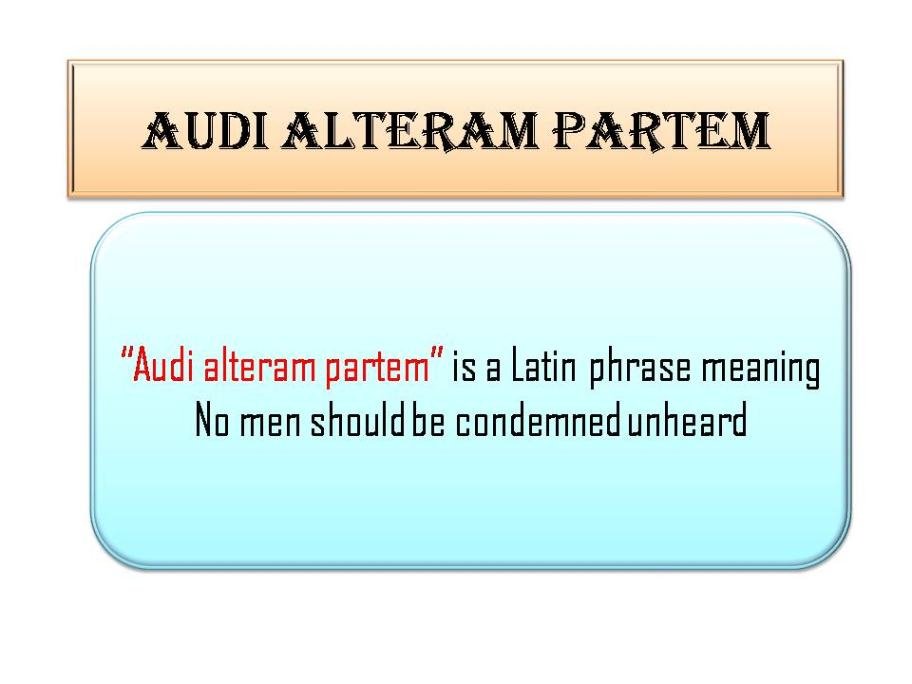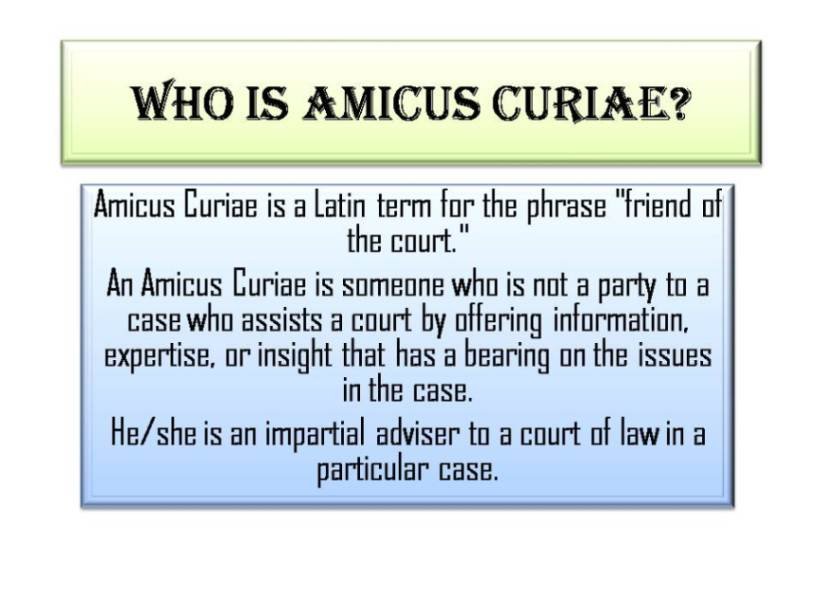Introduction of the Audi Alteram Partem case laws in India: – One of the fundamental needs under the foundations of natural justice is the legal maxim “Audi Alteram Partem“. The interpretation of the maxims, as well as their application and relevant case law, have been discussed in this article.
Meaning and Origin
Audi Alteram Partem is a Latin-derived legal maxim. Audi means ‘hear/listen,’ alteram means ‘other,’ and partem means ‘side/party,’ therefore the maxim Audi Alteram Partem translates as ‘Hear the other side or Allow the other party to be heard.’

Interpretation
One of the foundational notions of fairness and justice is Audi Alteram Partem. In layman’s words, it says that the court cannot decide before both sides have been heard, i.e., both the plaintiff and defendant should have the right or opportunity to submit their case to the court.
It offers the parties to a lawsuit the right to have their voices heard, and any major judgment made without hearing both sides is regarded to be against natural justice norms.
Implementation major steps include the aforementioned
Right to Notice
It essentially refers to the right to be fully aware. The notice should include all relevant information, such as the date at least, time, and location where the person is required to be present. An order issued without prior notice violates the precepts of Natural Justice.
Hearing
Hearing can occur both orally and in person. It is a right granted to both parties to represent their case in court.
Evidence
No evidence should be introduced in an ex-parte proceeding before a legal proceeding. Both parties must be present.
Legal Representatives
Both parties should be given an equal opportunity to represent themselves in the courtroom through a legal representative of their choice. This right is also guaranteed U/A 22(2) of the Constitution of India.
Exception to the principle
- Exclusion by Statute
- Impossibility of Parliamentary Function
- Cases of Importance
Significant case laws
P.N.B v. All India Bank Employee Federation
A penalty was levied on some accusations that were not specified in the notice provided to the defendant who was subjected to the penalties. The court determined that the notification was erroneous, and therefore the penalty was unconstitutional.
Harbans Lal v. Commissioner
The Supreme Court of India decided That the party upon whom penalties were levied should be given a proper chance to defend the same and that this is a very important aspect of the concept.
amicus curiae with Case Laws
Amicus Curiae is a legal term that refers to a person who supports the court by providing help and advice on legal or factual issues. With the use of relevant case law.

Origin and Significance
The legal adage Amicus Curiae is a Latin phrase that means “court friend”. As Amicus denotes “friend” and Curiae denotes “court,” amicus curiae simply signifies “friend of the court.”
Interpretation
Amicus curiae, often known as a friend of the courts, is an individual who helps, advises, and informs the court of law on legal issues involved.
This maxim’s primary characteristics are as follows:
- He or she is a third party to the lawsuit who isn’t even a party to the lawsuit.
- He or she has no vested significant stake in the legal precedent’s conclusion.
- His or her viewpoint is impartial and in the best interests of society as a whole.
Implementation
In some circumstances, the court finds it very difficult to reach a decision and seeks legal briefs from experts in the field in the subject matter of the lawsuit, or some people may volunteer to assist.
Amicus Curiae is a person who supports the court by providing guidance relevant to the case’s issues. Whether or not to review the Amicus briefs is entirely up to the court.
Significant Case Laws
Allen v. Sir Alfred Mc. Alpine & Sons
Salmon LJ stated in Allen v. Sir Alfred Mc. Alpine & Sons, that the responsibility of Amicus Curiae is to aid the judiciary by unbiasedly elucidating the law or, if any of the parties are unrepresented, supposed to be representing and trying to advance the valid argument on behalf of that party. This is taken to ensure the decision’s reliability and that both parties are represented properly.
Anokhilal v. the State of M.P
the court established the following recommendations:
- In cases involving life-or-death sentences, Counsel with a minimum of 10 years of practice at the Bar may be designated as Amicus Curiae or to represent the alleged perpetrator.
- When a counsel is assigned as an Amicus Curiae, he or she should be offered sufficient information to comprehend the best-case circumstance and properly prepare the issue.
- Discussions with the alleged perpetrator are permitted if the Amicus Curiae is going to represent the alleged perpetrator.

























